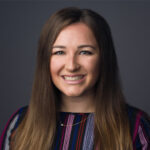
Women of all ages should know that no single test can detect every possible form of breast cancer. That being said, a routine mammogram is the gold standard for breast cancer screening in women. There are no acceptable alternatives to advanced digital mammography and the technology it uses.
Know Enough to Know Your Body
In recent years, there’s been debate over the value of a manual breast exam, whether performed by the woman herself or a healthcare provider. In fact, the American Cancer Society stopped recommending breast exams as effective screening methods in 2015. The organization cites data that reports how this practice is more likely to present false positive diagnoses than it is to save lives.
It should be noted that these guidelines are intended for women of average risk for breast cancer. You can talk to your primary care provider to determine if you’re at average risk, based on your family members and personal medical history.
Still, the medical community – including the American Cancer Society and the healthcare providers at Trinity Medical WNY – know the value of women understanding how their breasts “normally” look and feel. Often, this gives patients the confidence to report any changes between mammograms to their doctor.
“While breast self-exams have stopped being recommended, being breast self-aware has not. I encourage my patients to become familiar with the way their breasts look and feel, which can help them identify potential abnormalities later on like lumps or changes in their skin. If you notice any changes, remember to stay calm.
Call your doctor right away so that they can evaluate and develop a plan to monitor and treat the cause of the lump or change in the breast. Most lumps turn out to be benign or non-cancerous, but if it happens to be breast cancer that you’ve caught in the early stages, it is highly treatable and survivable.”
What to Look for in a Breast Exam
A few things to keep an eye on:
- Lack of usual symmetry between breasts, though changes in shape do happen over time
- A lump or knot you can feel, this could even be closer to your underarm
- Discharge from the nipple
Report Changes in Your Breast Tissue
Routine screenings for women under 30 aren’t usually recommended for those with average risk, because the occurrence rate is so low. Regardless of age, if you’ve you’ve noticed changes in your breast tissue or have any concerns about your risk for breast cancer, don’t hesitate to contact your primary care doctor, midwife, or OB/GYN.
Schedule a Visit with Dr. Beckholt

Dr. Shelby Beckholt specializes in obstetrics, gynecology, and gynecological surgery. Dr. Beckholt sees patients at Trinity Medical locations in Buffalo and Williamsville. To schedule an appointment with Dr. Beckholt, call (716) 846-1190 or (716) 559-3803.


